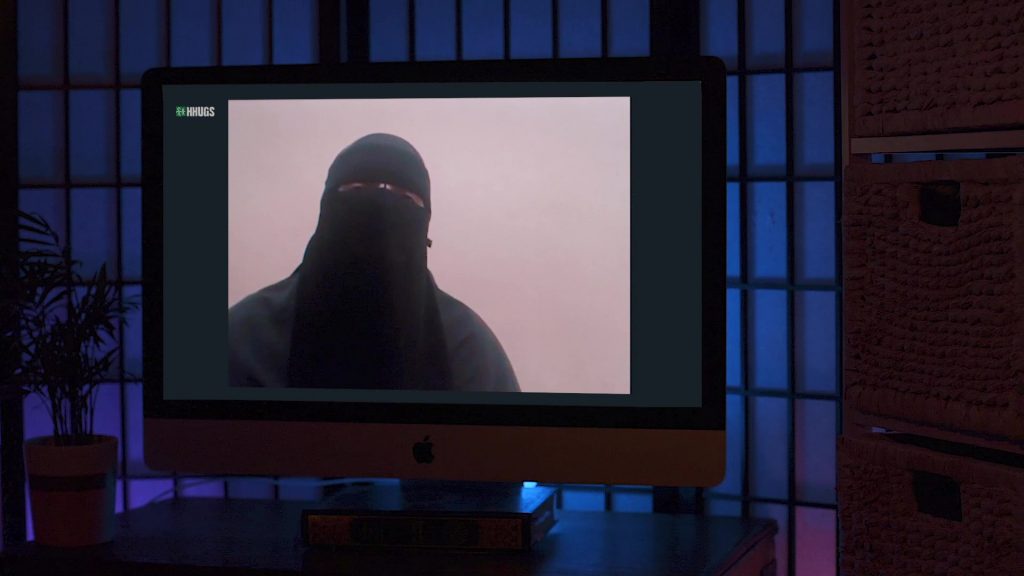“Ramadhan and Eid were the loneliest of times. Whether we were staying with my husband or in our family home, we were completely isolated.”
Life in self isolation
My husband was now living life under a control order in another city. He faced immediate restrictions of a boundary, defining where he was allowed to go, and signing on at the police station every single day. This meant he was unable to look for work, which, for such a naturally hard-working person, was extremely difficult to live with. Employers would have been extremely reluctant to even consider him for work knowing he was living under a control order. There was plenty of people he was no longer allowed to communicate with under any circumstances. There was also a curfew; typically from 8:am-8pm. This was so strict that it meant he wasn’t even allowed to enter his garden at night to bring the cat in. Then there were the daily searches. The police would come – sometimes they would knock, at other times it was like an unexpected full-scale raid again. He would be followed around, officers waiting outside of the bathroom when he went to use it or standing right next to him when he would make a cup of tea in the kitchen. It felt intrusive to be shadowed like that.
Life changed beyond recognition for us. Finances became one of the most difficult burdens to carry. In all practical terms, we now had two households to run. He didn’t pay rent on the property he was living in, however there were still bills, food and transport costs. When the children and I were finally allowed to visit, we had to make sure both homes were stocked with adequate food and groceries, constantly splitting the little income we had between two homes and trying to keep a track of what we had where. It got to the point where I knew that, unless we were planning to visit, my husband would simply go without,as he was never the type of man to put his needs first. This was the hardest thing for, the thought of him suffering because he didn’t want to burden us.
Around this time, my son began to insist he wanted to go and stay with his father alone. It felt like he just needed that quality time alone with just his dad, as he missed him so intensely. So he would go with his uncles when they would go to see my husband but this meant that my two children were often apart. Our family was torn apart but my son seemed to need that alone-time with his dad.
But when his home continued to be raided, with my husband warned that if he ever broke the restrictions even unintentionally, he’d go to prison, we had to put an end to the visits without me. I began to worry what would happen to him. We couldn’t risk my son being left without a parent or guardian, in the hands of the officers, if they took his father away. It was very difficult for my son to accept it. It was a struggle for me too, I was trying so hard to keep everybody’s spirits up. It was incredibly testing, but alhamdulillah we managed it – somehow. With Allah’s mercy.
Before social distancing was the norm
My own family are not Muslim and they couldn’t relate to what happened at all. They were in a state of shock that something like this could occur. Sometimes they dismissed it, reassuring me, “Don’t worry, this will be resolved soon enough,” but I had experienced enough to know they were being naïve. Other family members simply stopped talking to us, thinking there was no smoke without fire and so decided they didn’t want to be in our lives anymore. My husband’s elderly parents were also unfamiliar with such situations. They worried massively, to the point it affected their health too. Some in the community openly said “we don’t want to talk to you during this period, we might come under fire too” and so distanced themselves from us. The few who would call to check up on me, eventually just were fishing for sensitive and “incriminating” information. When they didn’t get the gossip they were after, they stepped away too.
Usually, I’m the one who is constantly reassuring others, yet things were starting to change. We had no support network, we were a stress to our families and abandoned by our community. When the children were having a particular low day, or I was struggling myself, there was nobody to turn to. It was very frustrating, not to be able to have some normality in the house, not to be able to say “Alhamdulillah, everything’s ok” and then think that will fix everything. I was grateful at that time – alhamdulillah we were still alive, still breathing – but I had to learn it’s okay to not be okay and just to focus on surviving. One day at a time. However that looked.
When we were allowed to visit my husband, the trips were quite infrequent in the beginning. He didn’t want any visitors and he didn’t want to burden me. I didn’t drive at the time and the children were both so young still. He didn’t feel comfortable for us to travel up on our own. After a few weeks however, we were fortunate enough to find a brother who took us to see him. Other times, I figured out the journey myself. With our very limited finances, though this became a big financial weight on me, but I saw how much it benefited the children to see their father and that was all that mattered to me.
Meanwhile, my son was coming to the age where he should have been starting school. This meant the additional costs of uniform and supplies, but it also meant we would be confined to a full time school timetable, with little opportunity to see my husband. So I decided to home-educate him but with this, came another mountain of responsibility. What are 4 year olds meant to learn? Where do you begin? How do you provide everything a school does? I had to navigate everything from scratch, with barely any support or guidance. Aside from the academics, my sweet, once kind, very happy son was now full of rage and tantrums. I felt I had to almost morph into a psychologist to help him through this. Without his dad he was full of anger and aggression and I had to try to calm him. He didn’t understand his own feelings. It was tough on him and it was tough on me. And here we were together, trying to work it out.
Ramadhan like no other
Ramadhan and Eid were the loneliest of times. Whether we were staying with my husband or in our family home, we were completely isolated in any case. We couldn’t go to the mosque where he was and we couldn’t go to taraweeh as he had a curfew. I didn’t have any Muslim family. So we were either together, but alone, or I was with the children and alone. We tried to make sure we spent every Eid with him. We went to the Eid prayer, but again it was just incredibly lonely as we didn’t know a single person in the city and we felt the absence of our community more than ever. Even attending Eid prayer is a blessing which I always took for granted before this, since now we had to get special allowance from the Home Office in order to even attend. It just wasn’t the same at all. Life had been flipped on its head.

